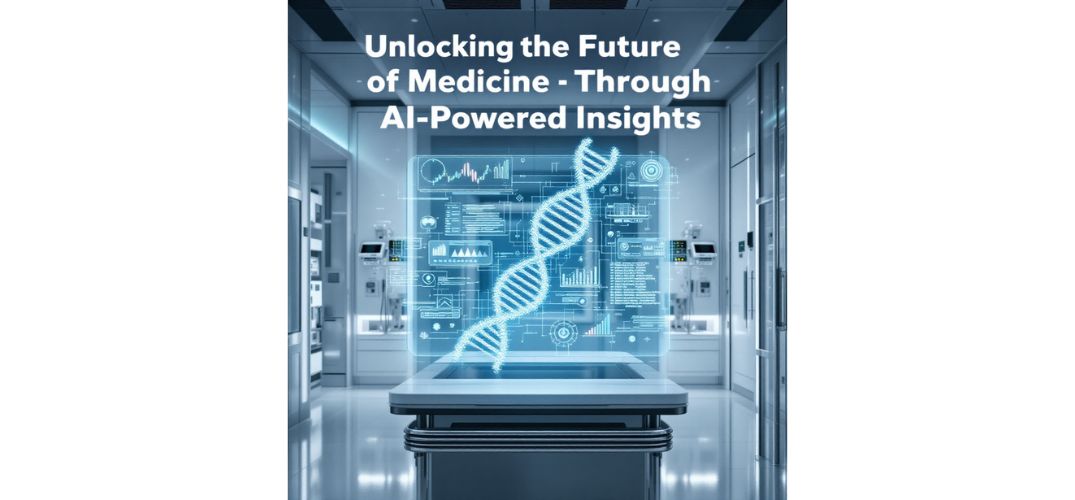In an era marked by exponential technological growth, Meghana Bhimavarapu, a researcher specializing in strategic healthcare solutions, explores how artificial intelligence (AI) is redefining the contours of modern medicine. Her work presents a compelling narrative on the fusion of data science and healthcare, paving the way for smarter, more efficient, and highly personalized care systems.
The Digital Torrent: Rethinking Healthcare Data
Healthcare institutions are producing data at an unprecedented scale, ranging from electronic health records and diagnostic images to genomic profiles and real-time monitoring outputs. This vast trove of information holds transformative potential but only if it can be processed meaningfully. Traditional analytical tools have struggled with this complexity. AI, particularly through machine learning and deep learning, steps into this void, offering scalable, nuanced, and timely analysis that converts fragmented data into actionable insights.
Sharper Diagnoses Through Smarter Systems
One of the most promising applications of AI in healthcare lies in diagnostic enhancement. Advanced algorithms now rival and often surpass human clinicians in identifying conditions through imaging and biomarker analysis. AI has shown high sensitivity in early detection of diseases like breast cancer and retinal disorders, reducing false negatives and improving patient outcomes. It excels in identifying subtle patterns that might elude even the most experienced eye, reinforcing its place as an indispensable ally in clinical diagnostics.
Guiding Clinicians with Predictive Intelligence
AI-driven clinical decision support systems are reshaping how healthcare providers assess risk, tailor treatments, and plan patient care. These models analyze historical and real-time data to predict complications well before they manifest, giving clinicians a valuable head start. For instance, AI has been instrumental in minimizing hospital readmissions through smarter post-discharge planning, offering a double dividend of cost efficiency and improved continuity of care. The outcome? More timely interventions, fewer errors, and personalized medical strategies that adapt to individual patient needs.
Administrative Backbone: AI Behind the Scenes
AI is revolutionizing healthcare logistics by automating documentation, coding, and billing, while optimizing supply chains, staffing, and scheduling through intelligent, data-driven algorithms and systems. This significantly reduces administrative load, enhances workflow efficiency, minimizes errors, and allows providers to focus more on patient care, satisfaction, and clinical decision-making.
Navigating Populations: Public Health Through a Predictive Lens
AI is not just enhancing care, it’s transforming community health strategies. Its predictive power can anticipate disease outbreaks, identify vulnerable demographics, and allocate resources efficiently. These capabilities enable early interventions and agile responses during public health emergencies, helping systems stay ahead of crises. By incorporating social determinants of health, AI paints a fuller picture of community needs, offering targeted solutions that improve overall well-being.
The Ethical Compass: Addressing AI’s Growing Pains
Despite its promise, AI’s path in healthcare is fraught with challenges. Data privacy is paramount. AI systems often require extensive access to sensitive patient information, raising the stakes for security and compliance. Additionally, algorithmic bias can perpetuate existing health disparities if training data lacks diversity. Integration with outdated IT infrastructure also poses hurdles, as does clinician skepticism towards opaque “black-box” systems. Ethical frameworks that emphasize transparency, fairness, and human oversight are critical to building trust and ensuring responsible use.
Evolving Systems: The Future Is Adaptive
Looking ahead, the next generation of AI solutions is already taking shape. Innovations such as federated learning allow institutions to collaborate without compromising data privacy, while explainable AI enhances transparency by making machine reasoning interpretable. The fusion of genomic and clinical data is enabling unprecedented precision in treatment, especially in fields like oncology. Real-time learning capabilities promise systems that adapt continuously to new patterns and populations, marking a shift toward truly intelligent, evolving care platforms.
In conclusion, AI in healthcare is not merely a technological upgrade it is a philosophical pivot toward precision, efficiency, and inclusivity. The work of Meghana Bhimavarapu emphasizes that when thoughtfully applied, AI serves not to replace the clinician but to amplify their impact. As the field continues to mature, success will hinge on collaborative governance, ethical integrity, and a steadfast commitment to patient-centered values. Through these lenses, AI emerges not as a disruptor but as a vital partner in the healing journey.

































